Cairo Dye
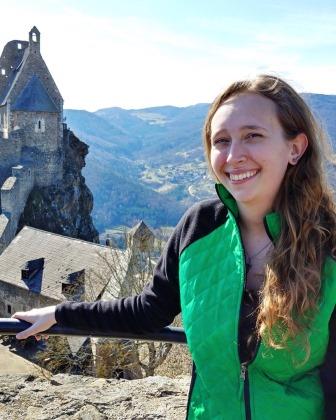 I am a senior at Northwestern from South Salem, New York. I’m graduating at the end of this quarter, but I would love to be a student forever because I love learning new things. I am a double major in theater and history, with a geographical concentration in European history, and a focus in theater management. I’ve also taken a lot of additional coursework in English, sociology, and gender studies, all of which have supported my learning in the history department. I decided to be a history major because it’s something that I’ve always loved as a kid, and it’s something my dad and I have always shared. I started with a particular interest in the American Revolution when I was a kid and Ben Franklin became a personal hero of mine. When I got older, around high school, my historical interests shifted to European history. My favorite courses here have been primarily in European Medieval History over my time at NU. My favorite class I’ve taken at Northwestern is Medieval Sexuality, taught by Professor Dyan Elliot. I have taken all of Professor Elliot’s courses since I took Medieval Sexuality as a freshman and she has been the most amazing professor. She has been an invaluable mentor to me throughout my time here and I’m very grateful for her support. She takes an exceptional personal interest in all of her students, and her stories and lectures are funny, engaging, and encourage us to ask questions, analyze and draw connections for ourselves. Professor Geraldo Cadava has also been a particularly important professor in my Northwestern career. He has always been incredibly approachable and has supported me in projects that bring my theater and history majors together, such as helping me produce an all female production of the musical 1776 last year as a part of the One Book One Northwestern program after I mentioned my theater interests to him when I was taking one of his courses. I am a senior at Northwestern from South Salem, New York. I’m graduating at the end of this quarter, but I would love to be a student forever because I love learning new things. I am a double major in theater and history, with a geographical concentration in European history, and a focus in theater management. I’ve also taken a lot of additional coursework in English, sociology, and gender studies, all of which have supported my learning in the history department. I decided to be a history major because it’s something that I’ve always loved as a kid, and it’s something my dad and I have always shared. I started with a particular interest in the American Revolution when I was a kid and Ben Franklin became a personal hero of mine. When I got older, around high school, my historical interests shifted to European history. My favorite courses here have been primarily in European Medieval History over my time at NU. My favorite class I’ve taken at Northwestern is Medieval Sexuality, taught by Professor Dyan Elliot. I have taken all of Professor Elliot’s courses since I took Medieval Sexuality as a freshman and she has been the most amazing professor. She has been an invaluable mentor to me throughout my time here and I’m very grateful for her support. She takes an exceptional personal interest in all of her students, and her stories and lectures are funny, engaging, and encourage us to ask questions, analyze and draw connections for ourselves. Professor Geraldo Cadava has also been a particularly important professor in my Northwestern career. He has always been incredibly approachable and has supported me in projects that bring my theater and history majors together, such as helping me produce an all female production of the musical 1776 last year as a part of the One Book One Northwestern program after I mentioned my theater interests to him when I was taking one of his courses.
|
Frank Joranko
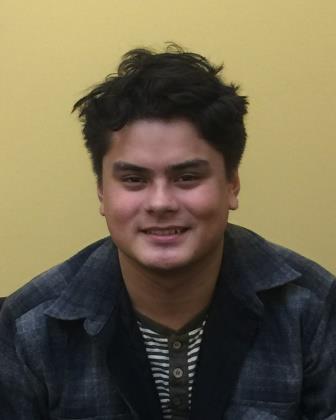 I am writing a thesis on the Indian Civil Rights Act of 1968 under the aegis of Professor Geraldo Cadava. I am primarily examining how the ICRA fits into a long legislative tradition of imposed amalgamation of tribal cultures and general western culture despite having been passed after the federal government committed to pursuing policies that were supposedly more in line with the goals of tribal self-determination. Viewing the piece through this lens involves analyzing legislation, Supreme Court rulings, and other auxiliary primary sources from before, during, and after the passage of the bill. These auxiliary sources include: Congressional Subcommittee hearings and contemporaneous literature by Native American activists. In part, I hope to see how the ICRA has impacted the trajectory of federal Indian policy. I am writing a thesis on the Indian Civil Rights Act of 1968 under the aegis of Professor Geraldo Cadava. I am primarily examining how the ICRA fits into a long legislative tradition of imposed amalgamation of tribal cultures and general western culture despite having been passed after the federal government committed to pursuing policies that were supposedly more in line with the goals of tribal self-determination. Viewing the piece through this lens involves analyzing legislation, Supreme Court rulings, and other auxiliary primary sources from before, during, and after the passage of the bill. These auxiliary sources include: Congressional Subcommittee hearings and contemporaneous literature by Native American activists. In part, I hope to see how the ICRA has impacted the trajectory of federal Indian policy.
I did not take many classes concerning this topic or even North American or contemporary events. For most of my undergraduate history studies, I studied Europe before the industrial revolution and often before the Enlightenment. When I first thought about writing a thesis, I naturally thought that it would be best to “cap-off” my studies by staying in an area that I had studied extensively. Nevertheless, I have maintained an interest in federal Indian policy ever since working at the Office of Tribal Justice in the US Department of Justice between my sophomore and junior years. I was already interested in civil rights and especially the Bill of Rights, so my boss turned me on to the ICRA and I have been captivated by it ever since. I am hoping that my research can lead me to understand more about Indian Civil rights, and to develop my knowledge of federal Indian Law and policy generally.
|
Sophie Chen
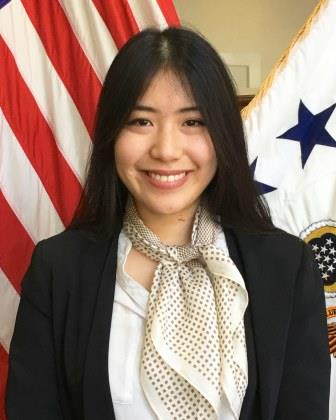 I am working with Professor Leslie Harris on my senior thesis, which investigates the fraught relationship between African Americans notables in Harlem and the Soviet Union in the 1930’s. Through my thesis, I hope to overturn notions that 20th-century African Americans allied (or not) with the Soviet Union because of their disappointment in US federal policy. I also seek to bring to light some of the internal political struggles that occurred among leftists in Harlem. I argue that many blacks in 1930s Harlem who had once gazed upon the USSR as a utopia because of its promise of economic and racial quality found that the Soviet Union acted in a way antithetical to concurrent movements—such as Black Internationalism, anti-nationalism, and the New Negro cultural movement—happening in Harlem. I’ve gathered my primary source materials at the Rose Library at Emory University and the Schomburg Center for Research in Black Culture in New York City. I was able to visit the latter a second time on an Academic Year Undergraduate Research Grant in the winter of 2018. I am working with Professor Leslie Harris on my senior thesis, which investigates the fraught relationship between African Americans notables in Harlem and the Soviet Union in the 1930’s. Through my thesis, I hope to overturn notions that 20th-century African Americans allied (or not) with the Soviet Union because of their disappointment in US federal policy. I also seek to bring to light some of the internal political struggles that occurred among leftists in Harlem. I argue that many blacks in 1930s Harlem who had once gazed upon the USSR as a utopia because of its promise of economic and racial quality found that the Soviet Union acted in a way antithetical to concurrent movements—such as Black Internationalism, anti-nationalism, and the New Negro cultural movement—happening in Harlem. I’ve gathered my primary source materials at the Rose Library at Emory University and the Schomburg Center for Research in Black Culture in New York City. I was able to visit the latter a second time on an Academic Year Undergraduate Research Grant in the winter of 2018.
I started off interested in the history of Black Minstrelsy but a burgeoning interest in Russia and the Soviet Union made me wonder about the intersection between African Americans and this new, utopian vision that emerged in the 20th century. A timely opportunity to travel to Emory University, which houses archival material on African American Communists, helped to solidify my topic.
[What do I hope to gain from writing a thesis?] Most importantly, I hope to have, by the end of my thesis, learned how to write a good thesis. Beyond that, I expect to have acquired the necessary skills to manage a long project, form a logical narrative from primary sources, and keep myself motivated.
|
Daniel Fernandez
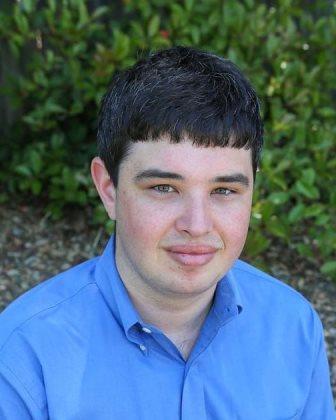 My thesis brings together two topics I’ve explored for much of my time at Northwestern: The history of criminal justice and journalism. Under the guidance of Professor Michael Sherry, I’m writing about the penal press, a loose consortium of magazines, tabloids, and newspapers published by prisoners across the U.S during the twentieth century. Think of them as antecedents to modern programs like “Ear Hustle” or The Marshall Project’s “Life Inside” series. My thesis brings together two topics I’ve explored for much of my time at Northwestern: The history of criminal justice and journalism. Under the guidance of Professor Michael Sherry, I’m writing about the penal press, a loose consortium of magazines, tabloids, and newspapers published by prisoners across the U.S during the twentieth century. Think of them as antecedents to modern programs like “Ear Hustle” or The Marshall Project’s “Life Inside” series.
My focus is a magazine called The Atlantian, which started in 1938 and was among the penal press’s most venerated publications. It earned plaudits in outlets such as The New York Times, The Nation, and The Christian Science Monitor, which declared it “the standard” for prison journalism, and prisoners from around the nation named it the most entertaining publication in circulation (it could count Eleanor Roosevelt, Dwight Eisenhower, and Margaret Mitchell among its many fans on the outside, too!).
I’m particularly interested in how The Atlantian and, by proxy, the penal press reflected enthusiasm for the rehabilitative ideal within American prisons. Regrettably, this history doesn’t always get a fair shake in popular accounts of criminal justice; it’s much easier to imagine that prison officials have never cared much about their charges, rather than interrogating how well-intentioned reformers helped to birth the sprawling and draconian system of incarceration and surveillance we live with today.
While there are times that my research can grow tedious and frustrating, I’m fortunate in that it rarely feels irrelevant. Addressing mass incarceration is among our greatest contemporary challenges, and I believe that interrogating our past can help us to not only better understand how we acquired the systems and institutions we have today, but also what we can do to pass more equitable and just laws in the future. Because I’m a member of Northwestern’s Prison Education Program, I have the added benefit of taking my research out into the world. I get to assist my students at Stateville Correctional Center in publishing personal essays for general-interest audiences, and we’re in the very early stages of launching a prisoner- led publication that I hope will one day reflect the vibrant and thoughtful work created by The Atlantian.
|
Beatriz Sampaio
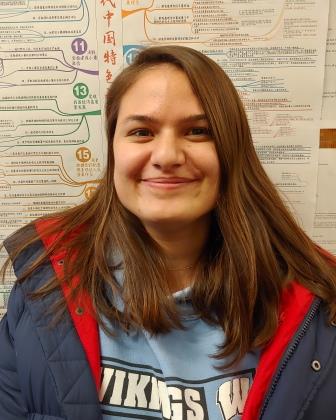 I am a sophomore from Salvador, Brazil. Finding my way to the History major was something of a long process. My family of doctors assumed I would also take up medicine at University, but studying away from home opened up new opportunities for me. Because the Brazilian education system places a lot of value on pre-professional undergraduate majors such as Law, coming to Northwestern I had only ever considered a limited selection of majors. During my Freshman year, however, Lane Fenrich, one of my professors at the Kaplan Scholars program, first sparked my interest in the History program. In his classes, Lane used History to connect past events to recent concepts and redefine what we were learning. After talking to Professor Fenrich about the major and taking Peter Carroll’s class on Chinese history this quarter, I decided to declare my major. The flexibility of the History major makes it easy for me to consolidate my interests in a way that no other program at Northwestern can. Learning more about Chinese history, for example, has been a good way to tie in the study of Mandarin, which I have taken up at University. At the same time, the study of History so far has introduced me to new interests that I will continue to explore throughout my remaining years at NU. I am a sophomore from Salvador, Brazil. Finding my way to the History major was something of a long process. My family of doctors assumed I would also take up medicine at University, but studying away from home opened up new opportunities for me. Because the Brazilian education system places a lot of value on pre-professional undergraduate majors such as Law, coming to Northwestern I had only ever considered a limited selection of majors. During my Freshman year, however, Lane Fenrich, one of my professors at the Kaplan Scholars program, first sparked my interest in the History program. In his classes, Lane used History to connect past events to recent concepts and redefine what we were learning. After talking to Professor Fenrich about the major and taking Peter Carroll’s class on Chinese history this quarter, I decided to declare my major. The flexibility of the History major makes it easy for me to consolidate my interests in a way that no other program at Northwestern can. Learning more about Chinese history, for example, has been a good way to tie in the study of Mandarin, which I have taken up at University. At the same time, the study of History so far has introduced me to new interests that I will continue to explore throughout my remaining years at NU.
|

 I am a senior at Northwestern from South Salem, New York. I’m graduating at the end of this quarter, but I would love to be a student forever because I love learning new things. I am a double major in theater and history, with a geographical concentration in European history, and a focus in theater management. I’ve also taken a lot of additional coursework in English, sociology, and gender studies, all of which have supported my learning in the history department. I decided to be a history major because it’s something that I’ve always loved as a kid, and it’s something my dad and I have always shared. I started with a particular interest in the American Revolution when I was a kid and Ben Franklin became a personal hero of mine. When I got older, around high school, my historical interests shifted to European history. My favorite courses here have been primarily in European Medieval History over my time at NU. My favorite class I’ve taken at Northwestern is Medieval Sexuality, taught by Professor Dyan Elliot. I have taken all of Professor Elliot’s courses since I took Medieval Sexuality as a freshman and she has been the most amazing professor. She has been an invaluable mentor to me throughout my time here and I’m very grateful for her support. She takes an exceptional personal interest in all of her students, and her stories and lectures are funny, engaging, and encourage us to ask questions, analyze and draw connections for ourselves. Professor Geraldo Cadava has also been a particularly important professor in my Northwestern career. He has always been incredibly approachable and has supported me in projects that bring my theater and history majors together, such as helping me produce an all female production of the musical 1776 last year as a part of the One Book One Northwestern program after I mentioned my theater interests to him when I was taking one of his courses.
I am a senior at Northwestern from South Salem, New York. I’m graduating at the end of this quarter, but I would love to be a student forever because I love learning new things. I am a double major in theater and history, with a geographical concentration in European history, and a focus in theater management. I’ve also taken a lot of additional coursework in English, sociology, and gender studies, all of which have supported my learning in the history department. I decided to be a history major because it’s something that I’ve always loved as a kid, and it’s something my dad and I have always shared. I started with a particular interest in the American Revolution when I was a kid and Ben Franklin became a personal hero of mine. When I got older, around high school, my historical interests shifted to European history. My favorite courses here have been primarily in European Medieval History over my time at NU. My favorite class I’ve taken at Northwestern is Medieval Sexuality, taught by Professor Dyan Elliot. I have taken all of Professor Elliot’s courses since I took Medieval Sexuality as a freshman and she has been the most amazing professor. She has been an invaluable mentor to me throughout my time here and I’m very grateful for her support. She takes an exceptional personal interest in all of her students, and her stories and lectures are funny, engaging, and encourage us to ask questions, analyze and draw connections for ourselves. Professor Geraldo Cadava has also been a particularly important professor in my Northwestern career. He has always been incredibly approachable and has supported me in projects that bring my theater and history majors together, such as helping me produce an all female production of the musical 1776 last year as a part of the One Book One Northwestern program after I mentioned my theater interests to him when I was taking one of his courses. I am writing a thesis on the Indian Civil Rights Act of 1968 under the aegis of Professor Geraldo Cadava. I am primarily examining how the ICRA fits into a long legislative tradition of imposed amalgamation of tribal cultures and general western culture despite having been passed after the federal government committed to pursuing policies that were supposedly more in line with the goals of tribal self-determination. Viewing the piece through this lens involves analyzing legislation, Supreme Court rulings, and other auxiliary primary sources from before, during, and after the passage of the bill. These auxiliary sources include: Congressional Subcommittee hearings and contemporaneous literature by Native American activists. In part, I hope to see how the ICRA has impacted the trajectory of federal Indian policy.
I am writing a thesis on the Indian Civil Rights Act of 1968 under the aegis of Professor Geraldo Cadava. I am primarily examining how the ICRA fits into a long legislative tradition of imposed amalgamation of tribal cultures and general western culture despite having been passed after the federal government committed to pursuing policies that were supposedly more in line with the goals of tribal self-determination. Viewing the piece through this lens involves analyzing legislation, Supreme Court rulings, and other auxiliary primary sources from before, during, and after the passage of the bill. These auxiliary sources include: Congressional Subcommittee hearings and contemporaneous literature by Native American activists. In part, I hope to see how the ICRA has impacted the trajectory of federal Indian policy. I am working with Professor Leslie Harris on my senior thesis, which investigates the fraught relationship between African Americans notables in Harlem and the Soviet Union in the 1930’s. Through my thesis, I hope to overturn notions that 20th-century African Americans allied (or not) with the Soviet Union because of their disappointment in US federal policy. I also seek to bring to light some of the internal political struggles that occurred among leftists in Harlem. I argue that many blacks in 1930s Harlem who had once gazed upon the USSR as a utopia because of its promise of economic and racial quality found that the Soviet Union acted in a way antithetical to concurrent movements—such as Black Internationalism, anti-nationalism, and the New Negro cultural movement—happening in Harlem. I’ve gathered my primary source materials at the Rose Library at Emory University and the Schomburg Center for Research in Black Culture in New York City. I was able to visit the latter a second time on an Academic Year Undergraduate Research Grant in the winter of 2018.
I am working with Professor Leslie Harris on my senior thesis, which investigates the fraught relationship between African Americans notables in Harlem and the Soviet Union in the 1930’s. Through my thesis, I hope to overturn notions that 20th-century African Americans allied (or not) with the Soviet Union because of their disappointment in US federal policy. I also seek to bring to light some of the internal political struggles that occurred among leftists in Harlem. I argue that many blacks in 1930s Harlem who had once gazed upon the USSR as a utopia because of its promise of economic and racial quality found that the Soviet Union acted in a way antithetical to concurrent movements—such as Black Internationalism, anti-nationalism, and the New Negro cultural movement—happening in Harlem. I’ve gathered my primary source materials at the Rose Library at Emory University and the Schomburg Center for Research in Black Culture in New York City. I was able to visit the latter a second time on an Academic Year Undergraduate Research Grant in the winter of 2018. My thesis brings together two topics I’ve explored for much of my time at Northwestern: The history of criminal justice and journalism. Under the guidance of Professor Michael Sherry, I’m writing about the penal press, a loose consortium of magazines, tabloids, and newspapers published by prisoners across the U.S during the twentieth century. Think of them as antecedents to modern programs like “Ear Hustle” or The Marshall Project’s “Life Inside” series.
My thesis brings together two topics I’ve explored for much of my time at Northwestern: The history of criminal justice and journalism. Under the guidance of Professor Michael Sherry, I’m writing about the penal press, a loose consortium of magazines, tabloids, and newspapers published by prisoners across the U.S during the twentieth century. Think of them as antecedents to modern programs like “Ear Hustle” or The Marshall Project’s “Life Inside” series. I am a sophomore from Salvador, Brazil. Finding my way to the History major was something of a long process. My family of doctors assumed I would also take up medicine at University, but studying away from home opened up new opportunities for me. Because the Brazilian education system places a lot of value on pre-professional undergraduate majors such as Law, coming to Northwestern I had only ever considered a limited selection of majors. During my Freshman year, however, Lane Fenrich, one of my professors at the Kaplan Scholars program, first sparked my interest in the History program. In his classes, Lane used History to connect past events to recent concepts and redefine what we were learning. After talking to Professor Fenrich about the major and taking Peter Carroll’s class on Chinese history this quarter, I decided to declare my major. The flexibility of the History major makes it easy for me to consolidate my interests in a way that no other program at Northwestern can. Learning more about Chinese history, for example, has been a good way to tie in the study of Mandarin, which I have taken up at University. At the same time, the study of History so far has introduced me to new interests that I will continue to explore throughout my remaining years at NU.
I am a sophomore from Salvador, Brazil. Finding my way to the History major was something of a long process. My family of doctors assumed I would also take up medicine at University, but studying away from home opened up new opportunities for me. Because the Brazilian education system places a lot of value on pre-professional undergraduate majors such as Law, coming to Northwestern I had only ever considered a limited selection of majors. During my Freshman year, however, Lane Fenrich, one of my professors at the Kaplan Scholars program, first sparked my interest in the History program. In his classes, Lane used History to connect past events to recent concepts and redefine what we were learning. After talking to Professor Fenrich about the major and taking Peter Carroll’s class on Chinese history this quarter, I decided to declare my major. The flexibility of the History major makes it easy for me to consolidate my interests in a way that no other program at Northwestern can. Learning more about Chinese history, for example, has been a good way to tie in the study of Mandarin, which I have taken up at University. At the same time, the study of History so far has introduced me to new interests that I will continue to explore throughout my remaining years at NU.